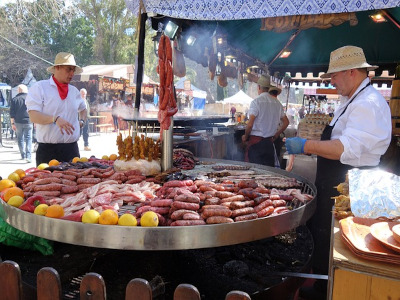There are a lot of different diets in the world, and it is very popular to say that I’m on a diet. For example, there are special diets for losing weight, gaining muscle, boosting focus, feeling healthier, etc. Some time ago, our main goal was to get something to eat, and the more nutrition you got out of food, the better. The most popular diets nowadays are Mediterranean, veganism, carnivore, paleo, intermittent fasting, and so on. In some of the diets, you can eat meat, and in others, you can’t. The thing you have to know about diets is that no diet is necessarily better than the other; you can always mix and match. For example, if you follow a vegetarian diet, you are more likely to develop an iron deficiency than your meat-eating counterparts, and iron deficiencies can lead to anemia. Debates over meat-eating are getting quite heated. There are a couple of reasons why we are arguing over meat eating, for example, ethical considerations and biological and evolutionary reasons.
Firstly, from evolutionary aspects, our bodies are designed to eat meat. How can we know that? Humans, like all other animals, are continuously adapting to changing environments and food availability. The ancestors of all animals are believed to be carnivores, they only ate meat. Nowadays, we also have herbivores, they are the ones who eat only plants. How can we say based on evolution that humans haven’t been involved into herbivores? The answer lies in our mouth, or, to be exact, in our teeth. We still have teeth in our mouth that are called canine teeth and incisors. The canine teeth are used for tearing the meat, and the incisors are used to cut into the food (but they can also cut plant-based food). Humans are omnivores, which means we can eat both meat and plants.
The biological reason for eating meat is that our bodies aren’t able to digest all the nutrition that we need to be healthy from the seeds, fruits, and vegetables. Firstly, humans can’t digest the cell walls because they are made of cellulose, hemicellulose, and linings, and in our stomachs we don’t have the necessary enzymes to breakdown the cellulose. Herbivores can digest cellulose since they have the necessary bacteria in their gut that produce enzymes to break down cellulose. Our bodies have all the necessary enzymes that can breakdown and help us absorb the nutrition from meat. To add, if we compare the herbivore and carnivore digestive tracts, the herbivore digestive tract is much longer because it takes more time to digest and absorb all the nutrients from plants, and they also need larger quantities of food to get all the necessary calories. On the nutrition aspect, plants don’t provide us with all the nutrition we need. The most important one is vitamin B12. This vitamin is necessary for the normal function of the nervous system and the formation of red blood cells. The other nutrients that are missing from a plant-based diet are creatine, vitamin D3, and omega-3 fatty acids, but these are ones our bodies can produce in small amounts.
Thirdly, eating meat or not eating it can come down to your culture. The food preferences of a culture are influenced by factors such as the environment, religious beliefs, and the availability of local plants and animals. It is common for people to form connections through food. If meat is an important aspect of your culture, it may also play a significant role in your personal identity. It is valuable to understand the customs and traditions of your food culture in order to nourish yourself, enjoy a healthy diet, and maintain a connection to your heritage.
In conclusion, you have to listen to your body, and it will let you know what kind of nutrients it needs. It is important to know that we should eat both plants and meat, and you shouldn’t eat meat all the time. You should know that eating a lot of processed meat can increase your risk of colorectal cancer and heart disease. On the other side, vegetarian diets have proven that they can help you lower the risk of getting cancer, and they also lower the risk of heart disease. To sum up, you should think that you can get all the necessary nutrition from your daily meal.

Sources:
https://barbend.com/types-of-diets/
https://www.healthline.com/nutrition/are-humans-supposed-to-eat-meat#evolution
https://www.peta.org/features/are-humans-supposed-to-eat-meat/
